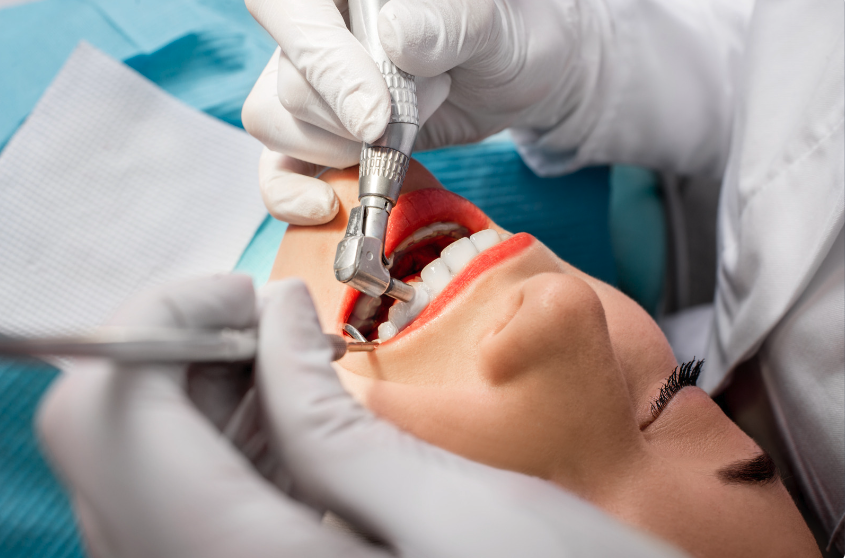• The Teeth Scaling Process • Types of Teeth Cleaning • Teeth Scaling Prices
Before starting, the dentist will examine your teeth and periodontal condition to determine if there are any periodontal diseases or other oral issues. If any are present, appropriate treatments must be carried out before scaling.
During the process, the dentist will use a scaler (such as an ultrasonic scaler) and other tools to gently remove plaque and tartar from the surfaces of your teeth and between them, without causing any damage to the teeth.
The degree of pain during scaling can vary depending on the condition of your teeth and the type of cleaning you choose. Generally, scaling can be painful if you haven’t had it done in a while due to tartar and plaque build-up. You may also experience discomfort with ultrasonic dental scaling. If necessary, the dentist can use local anaesthesia or other pain relief measures to alleviate any discomfort. However, an almost painless option for scaling is available, which will be explained further in the types of dental scaling.
Teeth Scaling Process
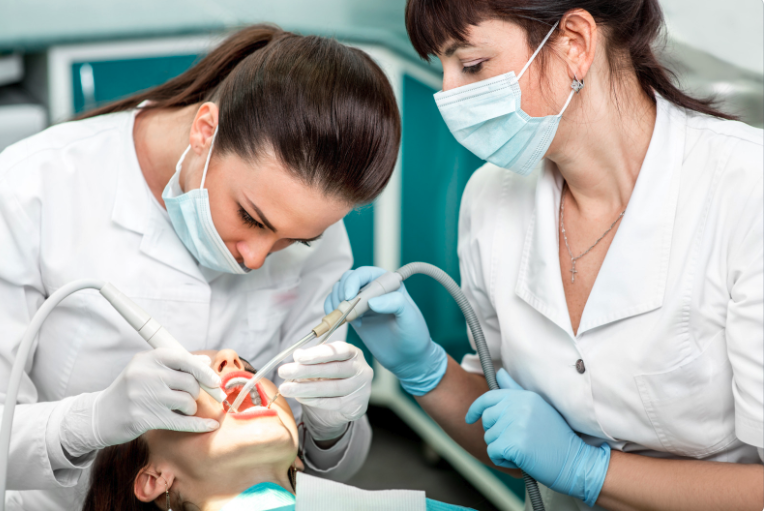
A professional dentist or dental hygienist typically performs teeth cleaning and involves the following steps:
1. Examination: The dentist or hygienist will first examine the oral condition to identify any periodontal disease or other oral issues and develop a treatment plan accordingly.
2. Plaque Removal: Using a scaler and other tools, the dentist or hygienist will remove plaque from the surfaces and between the teeth. Plaque is a sticky bacterial film that accumulates on teeth surfaces and between teeth, potentially leading to periodontitis and cavities.
3. Tartar Removal: The dentist or hygienist will use manual or ultrasonic scalers to remove tartar. This hard mineral deposit cannot be removed by brushing alone and can cause periodontal disease and tooth mobility.
4. Polishing: Using a polisher and abrasive, the dentist or hygienist will polish the teeth surfaces, making them smooth to reduce plaque and tartar buildup, thereby protecting oral health.
The principle of dental scaling is to remove plaque and tartar from the teeth surfaces and between the teeth, preventing and treating oral problems. Regular scaling improves oral hygiene and protects dental health. It is recommended that teeth cleaning is performed annually.
Types of Dental Cleaning
Common types of teeth cleaning include: 1. Regular Ultrasonic Scaling / Basic Scaling: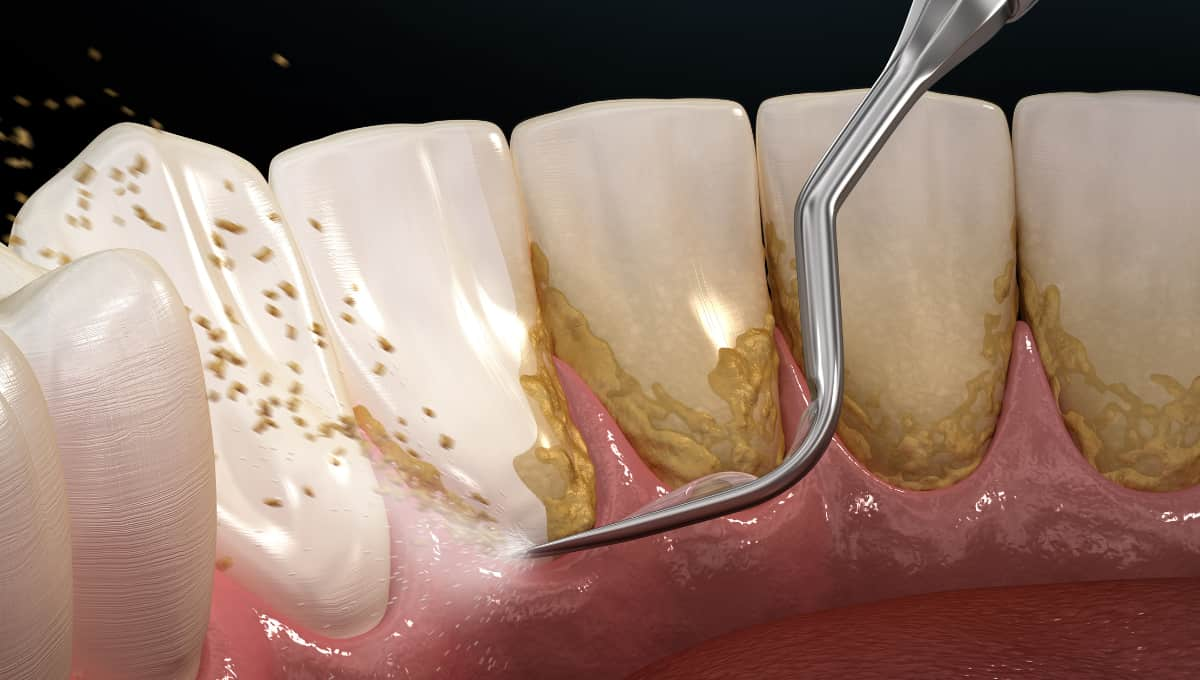 Also known as routine or conventional scaling, this is the most common type of teeth cleaning, involving the removal of plaque and tartar from teeth surfaces and between teeth to prevent and treat oral issues. This type of scaling is usually done using an ultrasonic scaler, which can cause slight pain and discomfort, especially for sensitive teeth.
Also known as routine or conventional scaling, this is the most common type of teeth cleaning, involving the removal of plaque and tartar from teeth surfaces and between teeth to prevent and treat oral issues. This type of scaling is usually done using an ultrasonic scaler, which can cause slight pain and discomfort, especially for sensitive teeth.The cost of dental scaling varies depending on the type and complexity of the procedure. Basic scaling typically costs from RM90 to RM200 at private clinics. However, government clinics offer the service at a significantly lower fee, often just RM1, though the waiting time for an appointment can extend to several months.
2. Deep Scaling and Root Planing
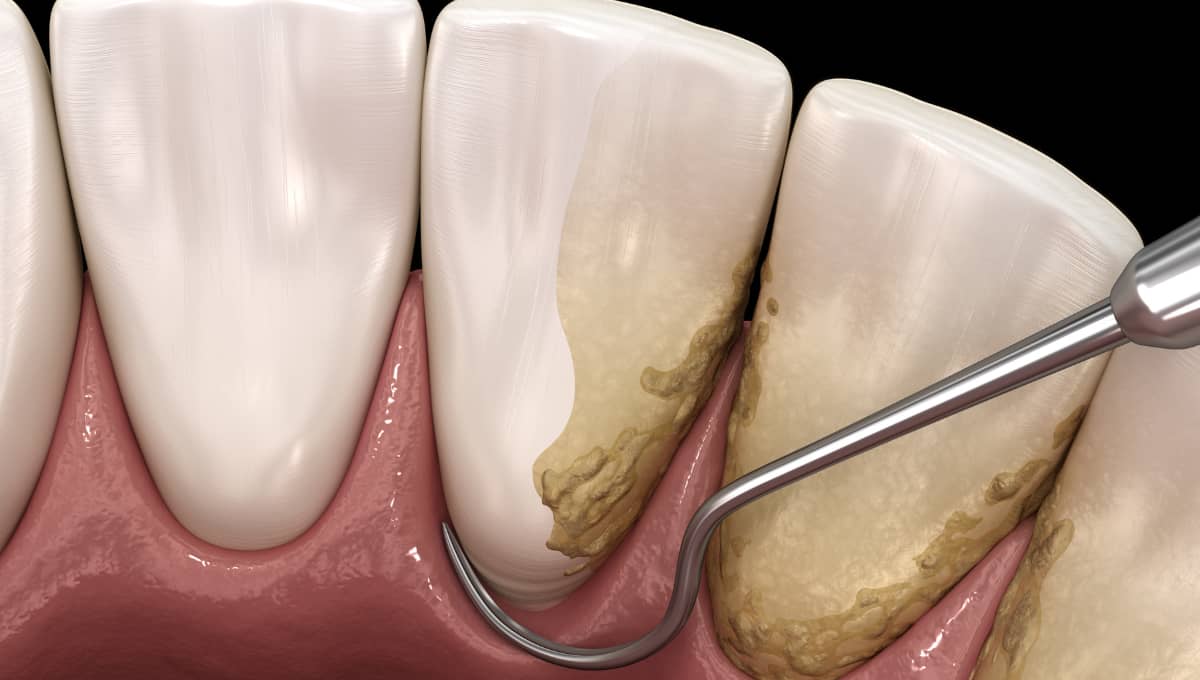 Root planing is a type of deep cleaning that is done on teeth that are below your gumline. It is mostly done for severe periodontal disease, involving the removal of plaque and tartar from the teeth surfaces, between teeth, and from the roots to restore periodontal health.
Root planing is a type of deep cleaning that is done on teeth that are below your gumline. It is mostly done for severe periodontal disease, involving the removal of plaque and tartar from the teeth surfaces, between teeth, and from the roots to restore periodontal health.Due to the nature of the procedure, it can be more uncomfortable than basic scaling, and local anaesthesia is often used to manage pain. Deep scaling can cost from RM300 and above per session, depending on the severity of the condition and the number of sessions required.
3. Airflow Scaling
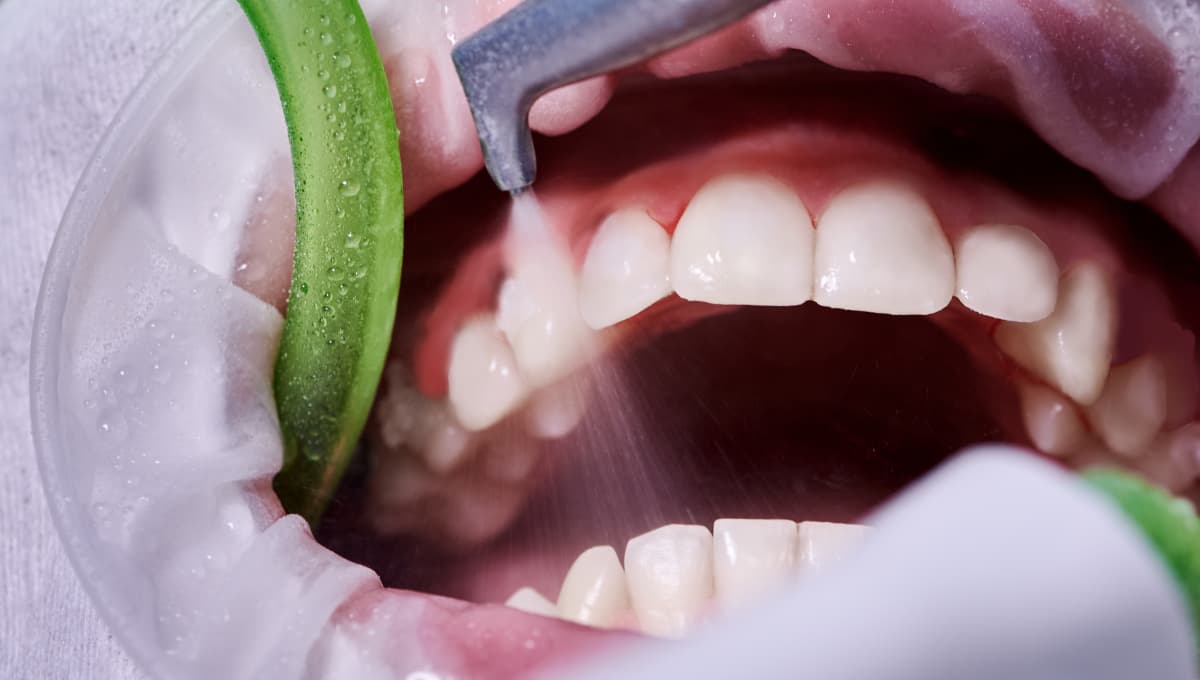 This method uses high-pressure airflow and small abrasive particles to remove dirt and tartar from teeth surfaces more gently without damaging enamel and teeth surfaces.
This method uses high-pressure airflow and small abrasive particles to remove dirt and tartar from teeth surfaces more gently without damaging enamel and teeth surfaces.Airflow scaling is almost painless since it primarily uses air and water to clean the teeth, making it a suitable option for those with sensitive teeth. Airflow scaling usually starts from RM250.
4. Laser Scaling
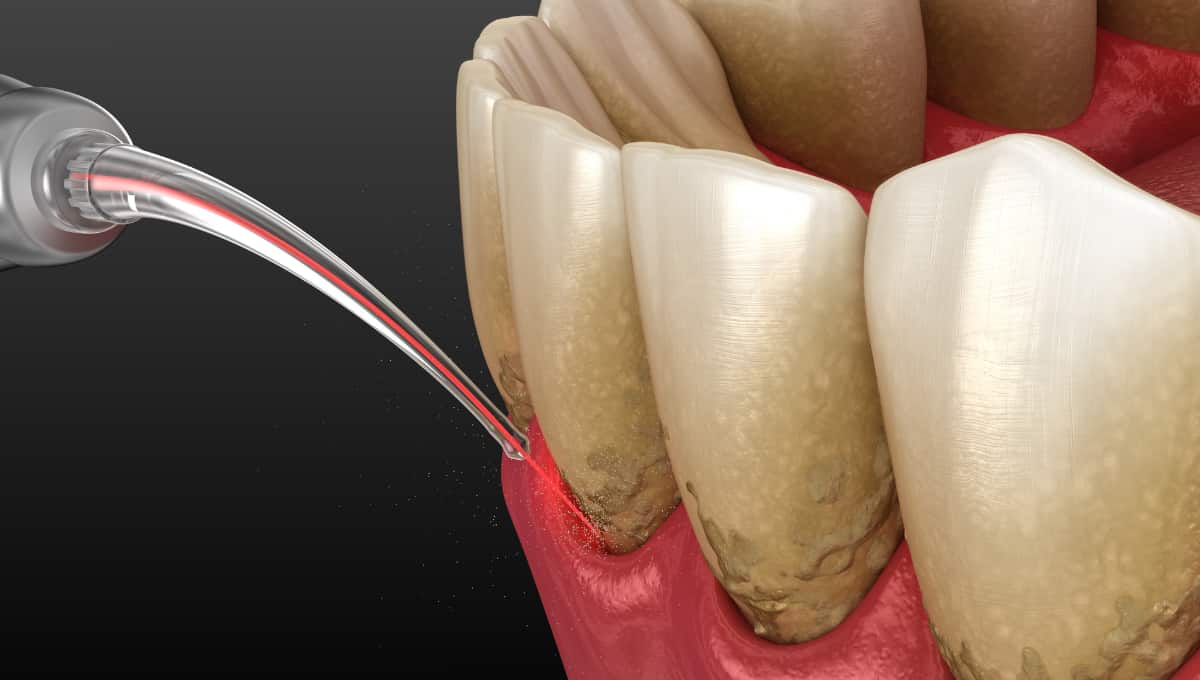 This method uses laser technology to accurately remove plaque and tartar from teeth surfaces and between teeth. The laser can also stimulate the teeth's self-repair ability. Laser scaling typically results in less discomfort than traditional methods, making it an appealing option for those concerned about pain.
This method uses laser technology to accurately remove plaque and tartar from teeth surfaces and between teeth. The laser can also stimulate the teeth's self-repair ability. Laser scaling typically results in less discomfort than traditional methods, making it an appealing option for those concerned about pain.The cost of laser scaling tends to be higher due to the advanced technology and specialised equipment involved. Prices are generally priced from RM800+ per session, depending on the complexity of the procedure, the dental clinic’s location, and the patient's specific needs.
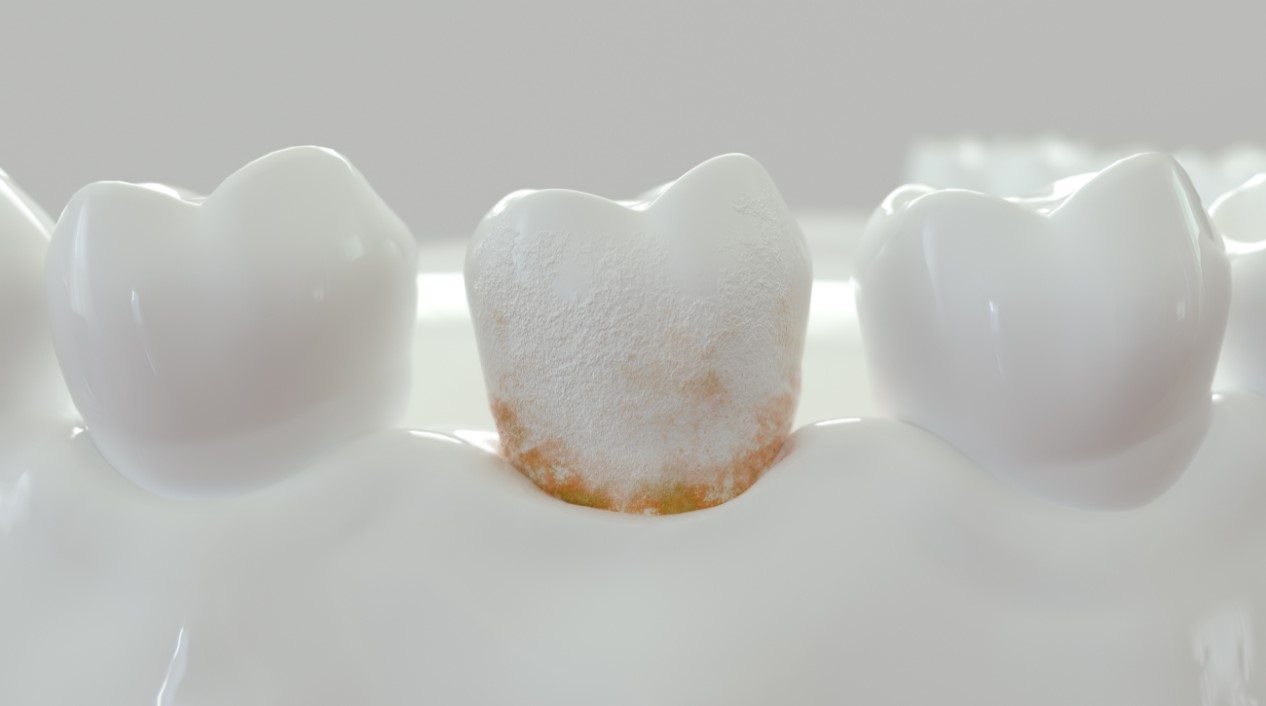
Understanding the principles of dental scaling and addressing concerns about whether teeth cleaning hurts can help you feel more at ease with the procedure. For a precise cost estimate of teeth scaling and polishing, consult your dentist, as prices depend on the procedure, your condition, and the clinic. To learn more about teeth scaling or other dental information, complete a free online smile assessment to receive a personalised teeth straightening plan to regain a charming, healthy smile.
